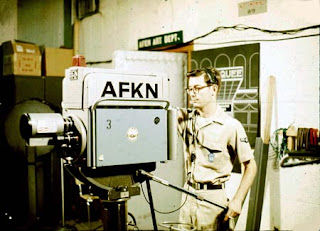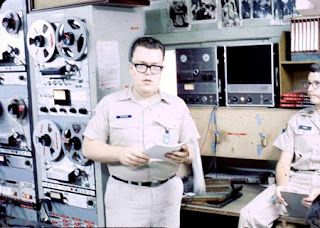Okay, this is hardly new, but it amused me greatly when someone reminded me of it recently. It is the top 50 things I learned from watching Korean TV dramas.
50 things you can learn from a korean drama
1) Hot, rich, younger men love fat, older vulgar women.
2) If you have a best guy friend, he is in love with you. And secretly you are too.
3) You and your boyfriend will always playfully chase each other on an ice rink, at the beach, or in the leaves. And you’ll laugh for no reason and your boyfriend will hit you “playfully” but the force of his push will have you flying across the room. But it’s okay. Cuz you’re still laughing like a crazy person.
4) Brothers/cousin/uncles-newphews will always love the same girl.
5) You’re allowed to make uturns wherever you want in Korea. And there is never traffic on the side you want to u turn to.
6) There is a super quick payment device that allows you to pay a bill quickly enough for a guy to run immediately out of a restaurant after his angry girlfriend storms out.
7) Everyone has cancer.
8) If you’re sick, all you need is an IV to make you feel lots better.
9) There is vomit and urine all over Seoul at nights.
10) Fighting at a pojangmacha with a random stranger is merely part of a normal night’s event.
11) Soju must cost 10 cents. Everyone drinks it everyday all the time, especially the poor people.
12) If you’re rich, you’re a jerk.
13) If you’re poor, you’re an angel.
14) Women sleep and wake up with a full set of makeup on.
15) You’re not studying hard enough unless you get a nosebleed.
16) If you have a nosebleed, you most definitely have cancer. And you have no money to pay for the surgery that will save your life. And your liver is missing. We’re not sure where it went, but it’s making your cancer progress faster.
17) If you work in a sool jeep, you have massively curly hair and wear flashy colors from the early 90’s.
18) You always order orange juice or coffee at a cafe. And you never drink it. EVER.
19) You will always call your boyfriend by his job title. Or simply sunbaenim. Never his name. Never. He doesn’t have one.
20) If you TRULY love each other, you must die together in the end. Frozen outside instead of finding shelter like sane people. Just frozen….
21) You go to America you come back miraculously successful. You go to England you come back amazingly fashionable. You stay in Korea the only thing that changes is your hairstyle.
22) And if you come back with no apparent reason then it’s because you have cancer.
23) Everyone always goes to the same hospital no matter where they are.
24) If you stand out in the rain for more than five minutes, you’ll end up with a fever and vertigo and people will rush you to the hospital to get some magic IV. And instead of taking an ambulance or driving they’ll race you on their back.
25) Even if you’re poor and can’t eat, you never wear the same clothes twice.
26) If you play a poor kid, you always have dirt on your face and your hair is always messy.
27) If you’re saving someone from being hit from a car, you’ll push them out of the way and wait for the car to hit you instead.
28) Everyone has a long lost sister/brother/twin. Usually one they didn’t know about.
29) If you don’t want to answer your phone, you can’t just turn it off. The battery
needs to be taken out.
30) All korean men can drink hard, smoke long, sing well and play piano. Usually all at the same time. And at the same restaurant that has a piano that they let anyone use.
31) If you’re in a relationship, you must at one point leave and have your lover tearfully come RIGHT before you board the plane (vice versa applies as well. You can be the chaser). 60% of the time you see each other, the other 40% you’re roaming around in circles and pass each other about six times, but miraculously never see them.
32) If you’re getting off a plane, you’re ALWAYS wearing sunglasses. ALWAYS.
33) All guys wear hideous tracksuits zipped up to their neck. Even if all they’re doing is jumping rope.
34) Girls will always storm off because they’re mad and the guy will stoically grab them by the arm and swing them back- and by magic, not dislocate their shoulders.
35) Guys always look like they’re 6 feet tall, even if they’re only 5’10. Thank you camera angles.
36) Guys like to wear foundation, eyeliner and sometimes a smudge of lipliner.
37) You always get stuck in an elevator with someone who makes you feel uncomfortable. Even if there are six different elevators, you’ll always be stuck in the same one with that bastard you hate (or just fought with).
38) Unless you’re fabulously rich, your in-laws will always hate you.
39) So will your sister-in-law.
40) Your brother-in-law might be pining away for you.
41) There are only 2 ways to kiss. You either press your lips against theirs with your mouth completely shut, and just press away for a very long and uncomfortable time. OR you devour the other person and suck out their soul. In both instances, the world spins.
42) A guy will always get the right size ring, even if you’re never held hands.
43) People stare off into space and ponder a lot. They’ll just stop in the middle of the road and watch a leaf on a tree for a good three minutes, and just ponder.
44) You’ll get pregnant the first time you have sex.
45) You’ll get pregnant if he kisses you on the forehead.
46) Hell- you’ll get pregnant if you hold hands.
47) If you overcome great obstacles to be together, one of you must die. Probably due to cancer.
48) One Korean man can kick the butts of 6 gangstas. Especially when they all stand in a circle and attack the guy one by one. Then when each of them get their butts OWNED, they wise up and attack the guy at the same time. Then the guy will get pulverized and bleed out onto the dusty concrete floor of the empty warehouse they’ve found to fight in. There will be a fire in a trashcan somewhere. And the girl will have watched this the entire time, screaming in horror. Instead of calling 119, she’ll just watch and cry. But it’s okay. Cuz the next day the guy will be fine with a few random bandages and a few face scars. But never a black eye.
49) It ain’t a real fight unless the gangstas fight dirty with a stick or switchblade.
50) If you study in the states (perferably Harvard), you are one of the top students and can speak perfect English (as assumed by the reactions of those around you). Why the rest of the world OUTSIDE of the TV can’t understand a single word uttered out of your melodramatic mouth is beyond me.







